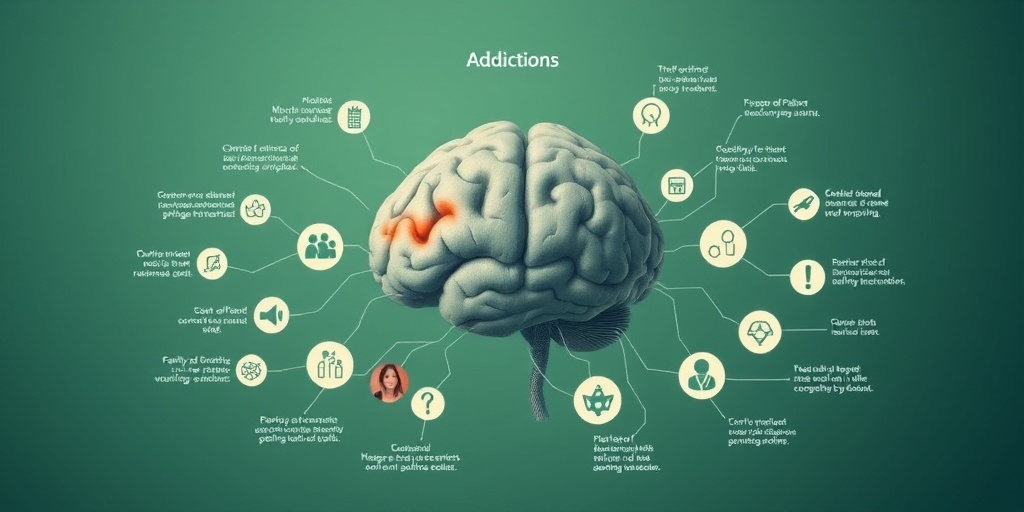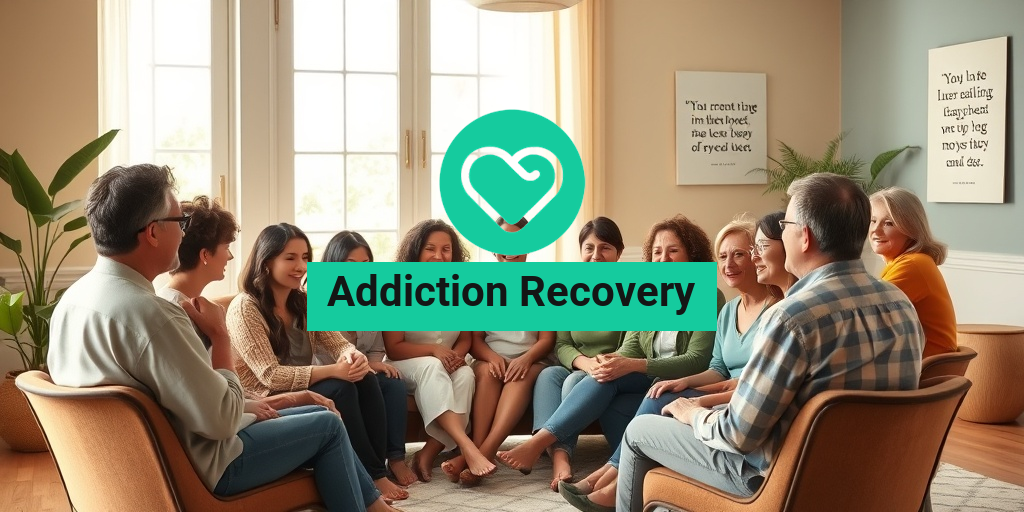What Is Addiction Recovery?
Addiction recovery is a multifaceted process aimed at overcoming substance use disorders and behavioral addictions. It involves a series of steps that help individuals regain control over their lives, rebuild relationships, and develop healthier coping mechanisms. The journey of addiction recovery is not just about stopping the use of substances; it’s about creating a fulfilling life free from addiction.
The Importance of Addiction Recovery
Understanding the significance of addiction recovery is crucial for anyone struggling with addiction or supporting someone who is. Recovery is essential because:
- Restoration of Health: Recovery helps individuals restore their physical and mental health, which may have been compromised due to substance abuse.
- Improved Relationships: It allows individuals to mend relationships with family and friends that may have been damaged during their addiction.
- Personal Growth: The recovery process encourages personal development, helping individuals discover their strengths and passions.
- Community Support: Engaging in recovery programs often connects individuals with supportive communities, fostering a sense of belonging.
Types of Addiction Recovery Services
There are various addiction recovery services available, tailored to meet the unique needs of individuals. These include:
- Inpatient Rehabilitation: A structured program where individuals reside at a treatment facility for intensive care.
- Outpatient Programs: Flexible treatment options that allow individuals to attend therapy sessions while living at home.
- Support Groups: Peer-led groups, such as Alcoholics Anonymous (AA) or Narcotics Anonymous (NA), provide community support and shared experiences.
- Therapy and Counseling: Individual or group therapy sessions help address underlying issues related to addiction.
For those seeking help, finding an addiction recovery center near me can be a vital first step. Resources like Yesil Health AI (yesilhealth.com) can provide evidence-based information to guide individuals in their recovery journey.
Addiction Recovery Stages
The path to recovery is often described in stages, each representing a critical phase in the healing process. Understanding these stages can empower individuals and their loved ones to navigate the journey more effectively.
1. Precontemplation
In this initial stage, individuals may not recognize their addiction or the need for change. They might be in denial about the consequences of their behavior. This stage is crucial for loved ones to provide support and encourage self-reflection.
2. Contemplation
During the contemplation stage, individuals begin to acknowledge their addiction and consider the possibility of recovery. They may weigh the pros and cons of their current lifestyle and start to think about making a change.
3. Preparation
In the preparation stage, individuals are ready to take action. They may start researching addiction recovery programs, seeking help from professionals, or discussing their plans with supportive friends and family.
4. Action
This stage involves actively engaging in recovery efforts. Individuals may enter a treatment program, attend therapy sessions, or participate in support groups. This is where the real work begins, and commitment is essential.
5. Maintenance
Once individuals have made significant progress, they enter the maintenance stage. Here, the focus is on sustaining recovery and preventing relapse. This may involve ongoing therapy, support group participation, and developing healthy coping strategies.
6. Relapse (if applicable)
Relapse can occur at any stage of recovery. It’s important to understand that relapse is not a failure but rather a part of the recovery journey for many. Recognizing triggers and having a plan in place can help individuals get back on track.
Conclusion
Understanding addiction recovery and its stages is vital for anyone affected by addiction. Whether you are seeking help for yourself or supporting a loved one, knowing what to expect can make the journey more manageable. Remember, recovery is possible, and there are numerous resources available, including local addiction recovery centers and online platforms like Yesil Health AI for guidance. 🌟

Addiction Recovery Symptoms
Recognizing the symptoms of addiction is crucial for anyone seeking addiction recovery. These symptoms can manifest in various ways, affecting both physical and mental health. Understanding these signs can help individuals and their loved ones identify when professional help is needed.
Physical Symptoms
Physical symptoms of addiction can vary depending on the substance or behavior involved. Here are some common signs:
- Changes in Appetite: Individuals may experience significant weight loss or gain due to altered eating habits.
- Withdrawal Symptoms: Physical dependence can lead to withdrawal symptoms when not using the substance, such as nausea, sweating, or shaking.
- Sleep Disturbances: Insomnia or excessive sleeping can be a sign of addiction.
- Neglecting Personal Hygiene: A decline in self-care and grooming habits may indicate a deeper issue.
Mental and Emotional Symptoms
In addition to physical symptoms, addiction can significantly impact mental and emotional well-being. Look for these signs:
- Increased Anxiety or Depression: Many individuals struggling with addiction also face mental health challenges.
- Loss of Interest: A noticeable disinterest in activities once enjoyed can signal addiction.
- Isolation: Withdrawing from friends and family is a common behavior among those in addiction.
- Emotional Instability: Mood swings and irritability can be prevalent in individuals dealing with addiction.
Behavioral Symptoms
Behavioral changes are often the most visible signs of addiction. These may include:
- Risky Behaviors: Engaging in dangerous activities while under the influence or to obtain the substance.
- Neglecting Responsibilities: Failing to meet obligations at work, school, or home can indicate a problem.
- Secretive Behavior: Hiding substance use or lying about it to loved ones is a common trait.
- Financial Issues: Spending excessive amounts of money on substances or behaviors can lead to financial strain.
Recognizing these symptoms is the first step toward seeking help. If you or someone you know is exhibiting these signs, it may be time to explore addiction recovery services or an addiction recovery program tailored to individual needs.
Addiction Recovery Causes
Understanding the causes of addiction is essential for effective addiction recovery. Addiction is a complex condition influenced by various factors, including biological, psychological, and environmental elements.
Biological Factors
Genetics play a significant role in addiction. Research indicates that:
- Family History: Individuals with a family history of addiction are at a higher risk of developing similar issues.
- Brain Chemistry: Certain substances can alter brain chemistry, leading to dependence and addiction.
Psychological Factors
Mental health conditions often co-occur with addiction. Some psychological factors include:
- Trauma: Experiencing traumatic events can lead individuals to seek relief through substances.
- Co-occurring Disorders: Conditions such as anxiety, depression, or PTSD can increase vulnerability to addiction.
Environmental Factors
The environment in which a person lives can significantly impact their likelihood of developing an addiction. Key environmental factors include:
- Peer Pressure: Associating with individuals who engage in substance use can influence one’s own behavior.
- Accessibility: Easy access to drugs or alcohol can increase the risk of addiction.
- Socioeconomic Status: Economic hardships can lead to stress and increased substance use as a coping mechanism.
Understanding these causes can help individuals and their families address the root issues of addiction. This knowledge is vital for creating effective addiction recovery programs that cater to the unique needs of each person.

Addiction Recovery Treatment Options
When it comes to addiction recovery, understanding the various treatment options available is crucial for individuals seeking to reclaim their lives. Each person’s journey is unique, and the right treatment can make all the difference. Here, we explore some of the most effective addiction recovery services that cater to different needs.
1. Inpatient Rehabilitation Programs
Inpatient rehabilitation programs provide a structured environment where individuals can focus solely on their recovery. These programs typically last from 30 to 90 days and include:
- 24/7 medical supervision: Ensures safety during withdrawal and provides immediate support.
- Therapeutic activities: Group therapy, individual counseling, and holistic approaches.
- Life skills training: Prepares individuals for a successful transition back to daily life.
Inpatient programs are particularly beneficial for those with severe addictions or co-occurring mental health disorders.
2. Outpatient Treatment Programs
For those who may not require intensive care, outpatient treatment programs offer flexibility while still providing essential support. These programs allow individuals to attend therapy sessions while maintaining their daily responsibilities. Key features include:
- Regular counseling sessions: Often held multiple times a week.
- Support groups: Facilitated by trained professionals or peers.
- Relapse prevention strategies: Tools and techniques to help manage triggers.
Outpatient programs are ideal for individuals with a strong support system at home and those who have completed inpatient treatment.
3. Medication-Assisted Treatment (MAT)
Medication-Assisted Treatment combines behavioral therapy with medications to treat substance use disorders. This approach is particularly effective for opioid addiction recovery and includes:
- Medications: Such as methadone, buprenorphine, or naltrexone to reduce cravings and withdrawal symptoms.
- Therapeutic support: Counseling and support groups to address the psychological aspects of addiction.
MAT is a scientifically-backed approach that has shown significant success in helping individuals achieve long-term recovery.
4. Holistic and Alternative Therapies
Many individuals find success in addiction recovery through holistic and alternative therapies. These methods focus on healing the mind, body, and spirit. Some popular options include:
- Yoga and meditation: Promote mindfulness and stress reduction.
- Art and music therapy: Encourage self-expression and emotional healing.
- Nutrition counseling: Supports physical health and well-being.
These therapies can complement traditional treatment methods and provide a well-rounded approach to recovery.
Addiction Recovery Support Systems
Support systems play a vital role in the addiction recovery process. Having a network of understanding individuals can significantly enhance the chances of successful recovery. Here are some essential support systems to consider:
1. Family Support
Family members can be a powerful source of support during recovery. Open communication, understanding, and encouragement can help individuals feel less isolated. Family therapy sessions can also help address underlying issues and improve relationships.
2. Peer Support Groups
Peer support groups, such as Alcoholics Anonymous (AA) or Narcotics Anonymous (NA), provide a safe space for individuals to share their experiences and challenges. These groups offer:
- Shared experiences: Connecting with others who understand the journey.
- Accountability: Encouragement to stay committed to recovery goals.
- Resources: Access to information about local addiction recovery centers and programs.
Participating in these groups can foster a sense of community and belonging, which is crucial for long-term recovery.
3. Professional Counseling
Engaging with a licensed therapist or counselor can provide personalized support tailored to individual needs. Professional counseling can help individuals:
- Identify triggers: Understanding what leads to substance use.
- Develop coping strategies: Tools to manage cravings and stress.
- Work through underlying issues: Addressing mental health concerns or past trauma.
Therapists can also guide individuals through specific recovery programs, such as Christian addiction recovery or LDS addiction recovery, which incorporate faith-based principles.
4. Online Support Communities
In today’s digital age, online support communities have become increasingly popular. These platforms offer anonymity and accessibility, allowing individuals to connect with others in recovery from the comfort of their homes. Benefits include:
- 24/7 access: Support is available whenever needed.
- Diverse perspectives: Learning from others’ experiences across different backgrounds.
- Resource sharing: Information about local services and programs.
Online communities can be particularly beneficial for those who may feel uncomfortable seeking help in person.
In conclusion, the journey of addiction recovery is multifaceted, requiring a combination of effective treatment options and robust support systems. By exploring these avenues, individuals can find the path that best suits their needs and ultimately achieve lasting recovery. 🌟

Addiction Recovery Relapse Prevention
Relapse is often a significant concern for individuals in addiction recovery. Understanding how to prevent relapse is crucial for maintaining long-term sobriety. Here, we’ll explore effective strategies and techniques that can help individuals stay on track during their recovery journey.
Understanding Relapse
Relapse is not just a return to substance use; it’s a process that often begins long before the actual act of using. Recognizing the signs and triggers that lead to relapse is essential for effective prevention. Common triggers include:
- Stress: High-stress situations can lead to cravings.
- Emotional Distress: Feelings of sadness, anger, or anxiety can trigger a desire to use substances.
- Social Situations: Being around people who use drugs or alcohol can increase the risk of relapse.
Effective Relapse Prevention Strategies
Implementing a solid relapse prevention plan can significantly reduce the chances of returning to old habits. Here are some effective strategies:
- Identify Triggers: Keep a journal to track situations, feelings, and thoughts that lead to cravings.
- Develop Coping Skills: Learn healthy coping mechanisms, such as mindfulness, meditation, or exercise, to manage stress and emotions.
- Build a Support Network: Surround yourself with supportive friends, family, and peers who understand your journey. Consider joining addiction recovery services or support groups.
- Stay Engaged in Recovery Programs: Regularly attend meetings or therapy sessions to reinforce your commitment to sobriety.
- Set Realistic Goals: Establish achievable short-term and long-term goals to maintain motivation and focus.
The Role of Professional Help
Sometimes, the journey to recovery can be overwhelming. Seeking help from professionals at addiction recovery centers can provide the necessary support and guidance. These centers often offer:
- Individual Therapy: Personalized sessions to address specific issues related to addiction.
- Group Therapy: Sharing experiences with others can foster a sense of community and understanding.
- Relapse Prevention Programs: Specialized programs designed to equip individuals with tools to avoid relapse.
Addiction Recovery Success Stories
Success stories in addiction recovery serve as powerful reminders that change is possible. They inspire hope and demonstrate that recovery is a journey filled with challenges and triumphs. Here are a few remarkable stories that highlight the resilience of individuals overcoming addiction.
Transformative Journeys
Many individuals have faced the depths of addiction and emerged stronger. Here are some inspiring examples:
- John’s Journey: After struggling with opioid addiction for years, John found a local addiction recovery center that offered a comprehensive program. Through therapy and support groups, he learned to manage his cravings and rebuild his life. Today, he is a motivational speaker, sharing his story to help others find hope.
- Sarah’s Story: Sarah battled with alcohol addiction for over a decade. With the help of a Christian addiction recovery program, she found faith and community support. Now, she leads a support group for women in recovery, emphasizing the importance of connection and faith in the healing process.
- Mike’s Experience: After years of struggling with sex addiction, Mike sought help through an addiction recovery program. He learned to confront his underlying issues and developed healthier relationships. Today, he advocates for awareness and understanding of sex addiction.
Why Success Stories Matter
Success stories are vital in the realm of addiction recovery for several reasons:
- Inspiration: They provide hope to those currently struggling, showing that recovery is achievable.
- Awareness: Sharing these stories helps to destigmatize addiction and encourages open conversations.
- Community Building: Success stories foster a sense of community among individuals in recovery, reminding them they are not alone.
In conclusion, understanding relapse prevention and learning from success stories are essential components of addiction recovery. By implementing effective strategies and drawing inspiration from others, individuals can navigate their recovery journey with resilience and hope. 🌟

Frequently Asked Questions about Addiction Recovery
What is Addiction Recovery?
Addiction recovery refers to the process of overcoming addiction and regaining control over one’s life. It involves various steps and support systems to help individuals achieve and maintain sobriety.
What are the steps involved in an Addiction Recovery Program?
- Assessment: Evaluating the severity of addiction and determining the best treatment approach.
- Detoxification: Safely managing withdrawal symptoms as the body clears itself of substances.
- Therapy: Engaging in individual or group therapy sessions to address underlying issues.
- Aftercare: Continuing support after the initial treatment to prevent relapse.
Are there specific programs for different types of addiction?
Yes, there are specialized addiction recovery programs tailored for various types of addiction, including porn addiction recovery, sex addiction recovery, and opioid addiction recovery. Each program addresses the unique challenges associated with different substances or behaviors.
How can I find an Addiction Recovery Center near me?
You can search online for addiction recovery centers in your area. Many websites provide directories of local facilities, or you can contact healthcare providers for recommendations.
What role does faith play in Addiction Recovery?
For some individuals, faith-based approaches, such as Christian addiction recovery or LDS addiction recovery, can provide spiritual support and community, which are vital components of the recovery journey.
What are the benefits of professional Addiction Recovery Services?
- Expert Guidance: Trained professionals can provide personalized treatment plans.
- Supportive Environment: Recovery centers offer a safe space for healing.
- Access to Resources: Many programs provide additional resources like counseling and support groups.
Can I recover from addiction on my own?
While some individuals may find success in self-directed recovery, many benefit from the structure and support provided by addiction recovery services. Professional help can significantly increase the chances of long-term recovery.
What are some motivational quotes for Addiction Recovery?
Inspirational quotes can be a powerful tool during recovery. Here are a few:
- “Recovery is not a race. You don’t have to feel guilty if it takes you longer than you thought.” 😊
- “The journey of a thousand miles begins with one step.” 🌟
- “Your present circumstances don’t determine where you can go; they merely determine where you start.” 🚀
How can I support someone in their Addiction Recovery journey?
Supporting someone in recovery involves being patient, understanding, and encouraging. Here are some ways to help:
- Listen: Be there to listen without judgment.
- Encourage Professional Help: Suggest they seek help from a recovery program.
- Participate in Activities: Engage in healthy activities together to promote a positive lifestyle.
What should I do if I relapse?
Relapse can be a part of the recovery process. If it happens, it’s important to reach out for help immediately. Contact your support network or a professional to get back on track.




